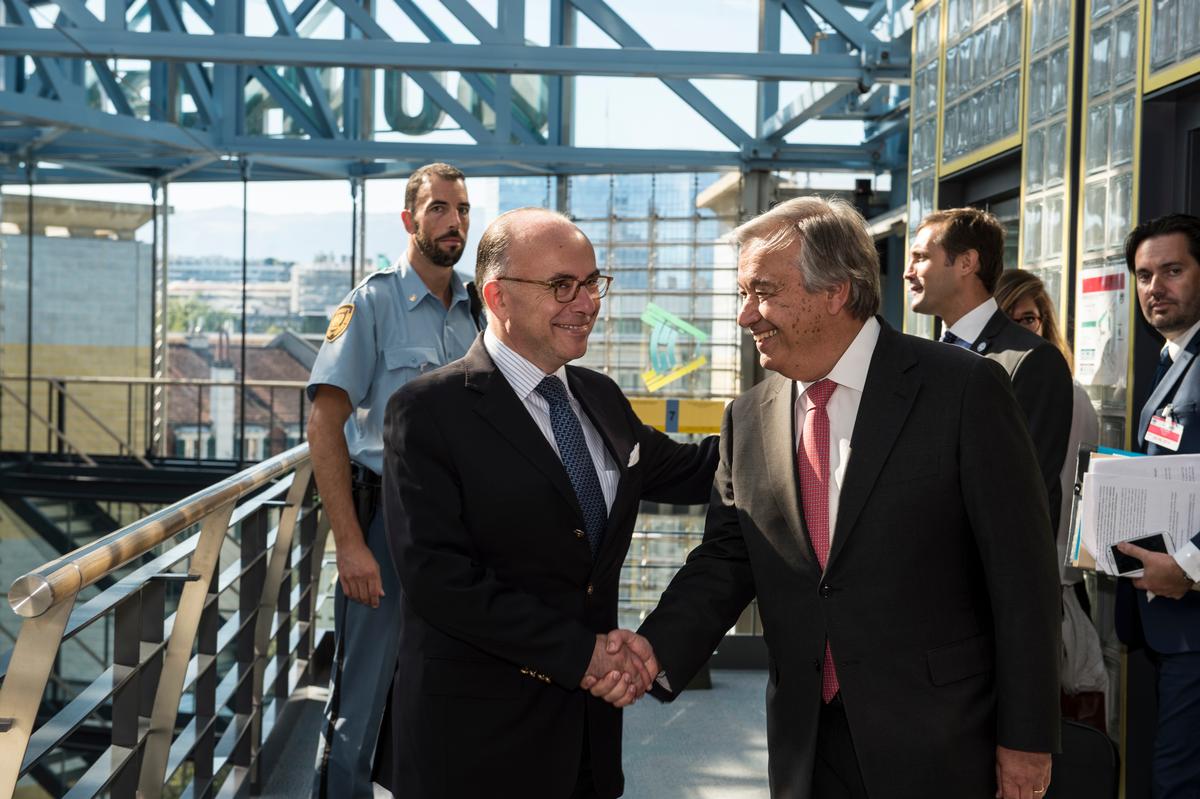Brazil to step up efforts to integrate refugees; reaffirms support for UNHCR
Brazil to step up efforts to integrate refugees; reaffirms support for UNHCR

BRASILIA, Brazil, August 8 (UNHCR) - The Brazilian government has pledged to increase funding for civil society initiatives to integrate refugees and reaffirmed its support for UNHCR operations worldwide.
Foreign Minister Antonio Patriota, after meeting with UN High Commissioner for Refugees António Guterres in Brasilia last week, said UNHCR had an "important agenda that deals with an enormous and growing problem." He added that Brazil "wants to participate in this effort of humanitarian assistance."
Senior Brazilian officials also told Guterres that the government will soon table a draft bill on statelessness and start the process of ratifying the 1990 UN Convention on the Protection of the Rights of All Migrant Workers and Members of their Families, which would benefit refugees and asylum-seekers.
Deputy Justice Minister Luiz Paulo Barreto handed Guterres a copy of the draft legislation, which will provide the mechanism for Brazil to implement the 1954 UN Convention relating to the Status of Stateless Persons. Under the bill, registered stateless people will be issued with Brazilian ID cards and be eligible for a permanent visa after residing for four years in the country.
"This is great news," Guterres said after his meetings in Brasilia. He added that initiatives such as the draft statelessness bill and ratification of the migrants convention "will complete an important legal framework for the protection of foreigners in general, and refugees in particular."
During his three-day stay, the High Commissioner also met male and female refugees living in Brazil, which provides shelter to more than 4,400 refugees from 77 different nationalities. Brazil is also one of the few countries in the world that offers resettlement to refugees.
The refugees from Asia, South America, Africa and the Caribbean told their visitor about the integration challenges they face in Brazil, including finding employment, becoming self-sufficient, obtaining decent housing, access to education and more.
"Their stories make clear that Brazil has some of the most advanced refugee legislation in the world, in terms of protection and rights. But complex integration problems persist within Brazilian society," Guterres noted.
He added that UNHCR welcomed the government's decision to increase the budget for local integration initiatives, saying that this would help make the integration of refugees in Brazilian society "more harmonious."
Guterres also participated in a conference at the Universidade de Brasilia, where he called for "a social mobilization against xenophobia, racism and intolerance," which he said were among the main threats to the protection of refugees on a global scale.
Meanwhile Barreto, who also heads Brazil's National Committee for Refugees, said that continuing forced displacement crises in the world "confirms the necessity of having a strong UNHCR, as well as the need of internal legal systems to grant international protection."
By Luiz Fernando Godinho in Brasilia, Brazil






